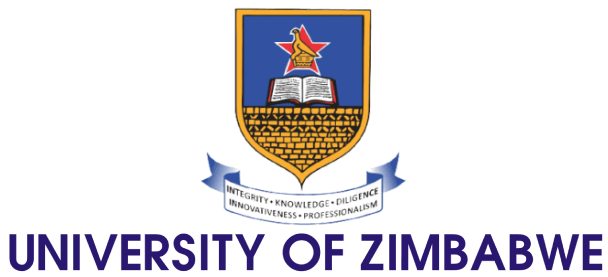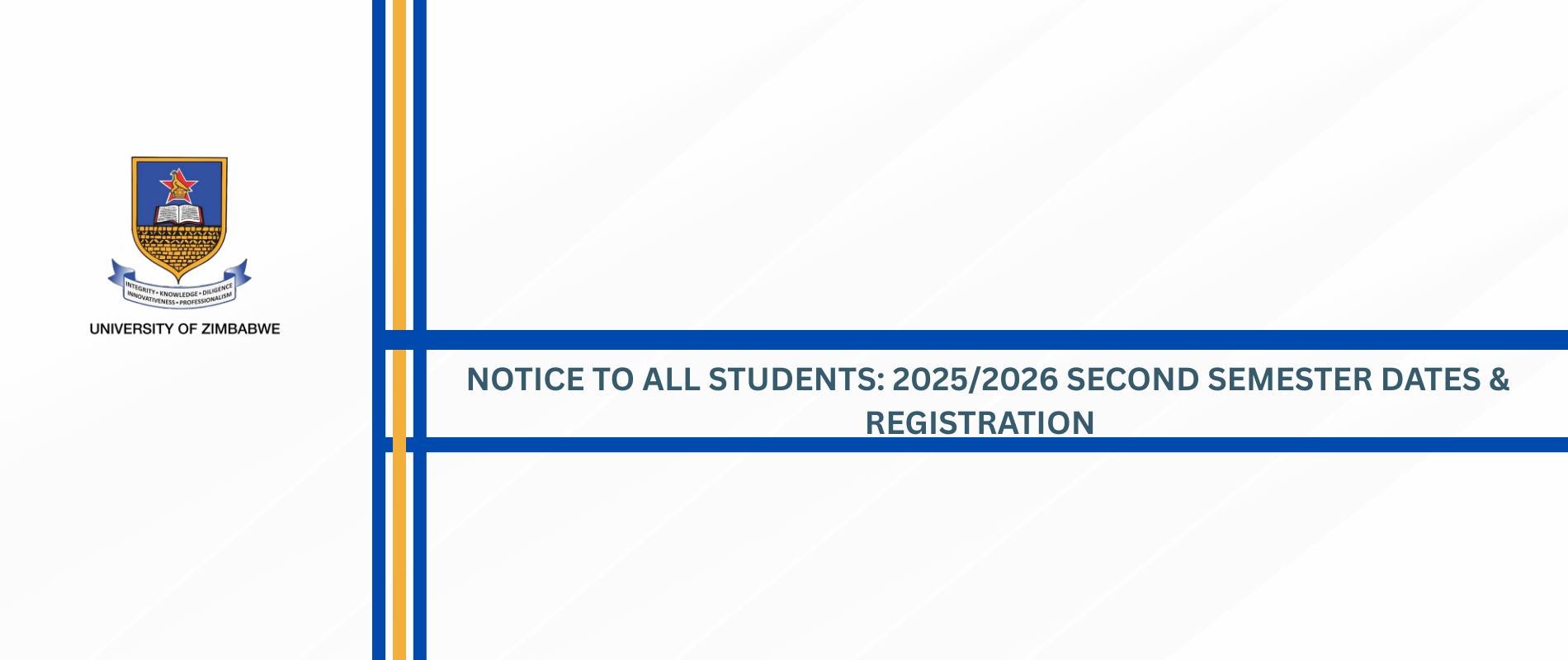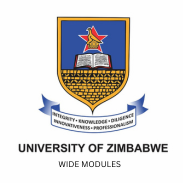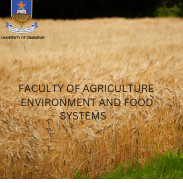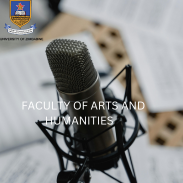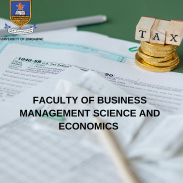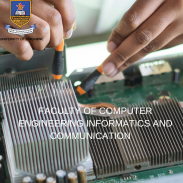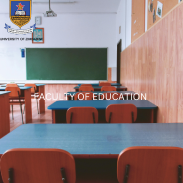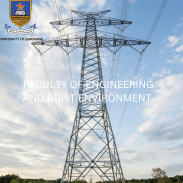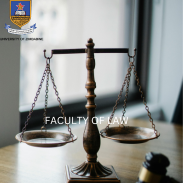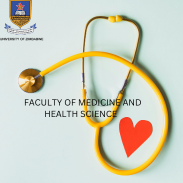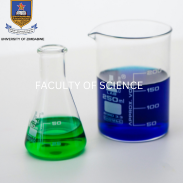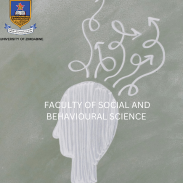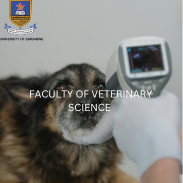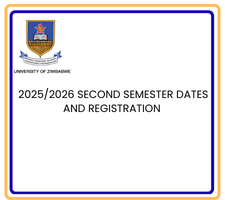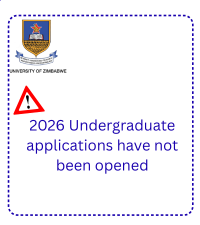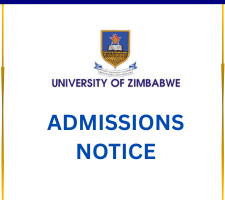Anna C Mupawaenda, Shingi Chawatama and Plaxidia Muwavarirwa Gender Issues in Livestock Production – A Case Study of Zimbabwe, Journal of Tropical Animal Health and Production. ISSN-0049 – 4747[Print] 1573 -7438{Online}, Date: December 21, 2008.
Chawatama, Mtisi, A C Mupawaenda, The Socio-economic Status of Smallholder Livestock Production in Zimbabwe: A Diagnostic Study – Livestock Research for Rural Development {17 G 2}, 2005.
Anna C Mupawaenda, B J Dorsey and Rudo Gaidzanwa, Factors Affecting Careers for Women at the University of Zimbabwe. Published by Human Research Resources Centre, UZ, 2005.
Masiiwa, M. (2013): Strengthening Capacity of Smallholders in Eastern Zimbabwe to Re-enter the Agricultural Economy and Improve Household Food Security, Institute of Development Studies, University of Zimbabwe, Harare & International Rescue Committee, London.
Masiiwa, M. & Giersing, B. (2012): Trade and Transport Facilitation Assessment in Zimbabwe, World Bank, Washington DC.
Masiiwa, M. & Doroh, B. (2012), Harnessing the Diaspora Potential for Socio-economic Development in Zimbabwe: Investment, Trade and Participation in Political Processes, Harare, Institute of Development Studies, University of Zimbabwe and National Association of Non-governmental Organizations (NANGO).
Masiiwa, M; Brown, D; Dodman, D. (et. al.): (2012) Climate Change Impacts, Vulnerability and Adaptation in Zimbabwe IIED’s Climate Change Working Paper Series (http://pubs.iied.org/pdfs/10031IIED.pdf)
Masiiwa, M., Sukume. C., Kujeke, R. (2011). Market and Trade Priority Issues in SADC Regional Agricultural Policy. Consultancy report to SADC and FAO, Food, Agriculture and Natural Resources (FANR). Gaborone, Botswana
Masiiwa, M. (2010). Trade and Trade Policy. In; Kanyenze, G. (Ed.) Beyond ESAP, Part II; Socio-economic Development in Zimbabwe. Harare, Weaver Press.
Masiiwa, M., (2010), Southern Africa-EU Negotiations since 2000 – Problems and Contradictions. Afriche c ORIENTI, Italy.
Masiiwa, M, & Kaulem, J.; (2010). The State of Civil Society in Zimbabwe. Non-State Actors Support Programme, Harare.
Masiiwa, M. & Mupotola, M.; (2007); Sanitary and Phytosanitary Measures in EU and Challenges for Southern Africa, Africa Institute for Policy Analysis and Development (AIPAD). Harare (33 Pgs).
Masiiwa, M. (2007); Trade Barriers in Agricultural Products in SADC; Southern African Confederation of Agricultural Unions (SACAU) & Africa Institute for Policy Analysis and Development (AIPAD), Harare (50 Pgs).
Masiiwa, M. (2007) Regional Economic Communities in Eastern and Southern Africa: Attractive Aspects for Zimbabwe. South African Institute of International Affairs (SAIIA). Policy Brief No. 14 (4 pgs).
Masiiwa, M., Gahamani, B. M., Munro-Knight, S. (et. al.), (2006); Economic Partnership Agreements (EPAs) and Investment, Christian Aid, London, (22 pgs).
Masiiwa, M. (2005); Global Trade Regimes and Trade Injustice: Impeding Development in Africa, Harare, Trade and Development Studies Centre. Issue No. 18 (3 pgs).
Masiiwa, M. (2002); The Regulation of Agricultural Trade Under World Trade Organization (WTO), Friedrich Ebert Stiftung & Trades Centre, Harare (18 pgs).
Masiiwa, M. (2002) The Role of Non-State Actors in Regional Integration in Southern and Eastern Africa. Harare, Trades Centre & Friedrich Ebert Stiftung.
Masiiwa, M. (2001); Agricultural Trade Regulations under the World Trade Organization (WTO): A users guide. Harare, Friedrich Ebert Stiftung (31 pgs).
Masiiwa, M.: (2001); The Role of Non State Actors in Regional Integration in Eastern and Southern Africa, Friedrich Ebert Stiftung, Trade Centre and HIVOS, Harare (17 pgs).
Masiiwa, M. (2001); Trade in genetically modified organisms and its impact of food security in developing countries.; Harare, Trade and Development Studies Centre. Issue No. 2 (2pgs).
Masiiwa, M.; (1998); Fair Trade Labelling in Zimbabwe’s Tea Sector. Harare, Friedrich Ebert Stiftung, (13 pgs).
Masiiwa, M. (1998); Development strategies for smallholder farmers in Gutu and Murewa Districts of Zimbabwe; in “Sustainable Agriculture for Food, Energy and Industry“. Eds: N. El Bassam, A. M. Korte, W. Bacher, B. Prochnow; James and James Science Publishers; London. (10 Pgs).
Masiiwa, M. (2002); Common property rights and the empowerment of communal farmers in Zimbabwe: institutional legal framework and policy challenges under globalisation; in Chikowore, G., Manzungu, E., Mushayavanhu, D. Shoko, D. [eds], Managing Common Property in an Age of Globalisation: Zimbabwean Experiences; Weaver Press, Harare. (15 pgs).
Masiiwa, M. (2005). The Fast Track Resettlement Programme in Zimbabwe: Disparity Between Policy Design and Implementation”, The Commonwealth Journal of International Affairs, University of Kent, UK.
Masiiwa, M. (2004) (Ed). Post Independent Land Reform in Zimbabwe: Controversies and Impact on the Economy. Harare, Institute of Development Studies & Friedrich-Ebert-Stiftung.
Masiiwa, M. (2001); Lome and the Economic Development of Africa: An Assessment; in Lange, J. and Imunde, L; (eds). New impulse in the Post-Lome Era, Evangelical Academy Loccum, Germany (10 pgs).
Mlambo, E & Mutongi, C (2013) Inforprenuership Zimbabwe Open University: Harare.
Mlambo, E. & Chanakira T. (2013) Management of Special Publications. Zimbabwe Open University: Harare.
Mlambo, E & Phiri, J. (2012) Digital library projects at the University of Zimbabwe- a success story. In press
Mbambo-Thata, B., Mlambo,E, Mwatsiya.(2010). When a gender-blind access policy results in discrimination: Realities and perceptions of female students at the University of Zimbabwe. London:Zed.
Mlambo, E. (2010) New Skills Bring New Opportunities: A case study on information literacy at the University of Zimbabwe. Oxford: INASP.
Mlambo, E., and Tevera, S. (2007). Digitizing local collections. In: B.Mbambo-Thata (ed). Building a digital library at the University of Zimbabwe; A celebration of teamwork and collaboration (pp33-46)
Mlambo, E. (2002) Partnerships in libraries: Cornerstones of Access: the case of Institute of Development Studies, University of Zimbabwe
Website: http://www.ala.org/work/international/2002papers.html
Sachikonye L. and Beckman, B. (eds.) (2001) Labour Regimes and Liberalization in Africa Harare: UZ Press
Sachikonye L. et. al. (2007) Consolidating Democratic Governance In Southern Africa: the Case of Zimbabwe,Joburg: EISA
Sachikonye L., B. Beckman and Buhlungu (eds) (2010) Trade Unions and Party Politics: Labour Movements in Africa Joburg: HSRC
Sachikonye, L. (2011) When a State turns on its Citizens: 60 Years of Institutionalized Violence Joburg: Jacana Media
Sachikonye, L. (2012) Zimbabwe’s Lost Decade: Politics, Development and Society. Harare: Weaver Press
Sachikonye, L. (1999) Restructuring or De-industrialising: textile and Metal Industries under adjustment Uppsala: NAI.
Sachikonye, L. (1999) Structural Adjustment, Labour Market Institutions and the Role of Social Partners Harare: ILO
Sachikonye, L. (2004) Inheriting the Earth: land reform in Southern Africa. London: CIIR
Sachikonye, L. (2007) Diamonds in Zimbabwe Joburg: OSISA
Wekwete N.N., 2010, “Adolescent Pregnancy Challenges in the Era of HIV and AIDS: A Case Study of a Selected Rural Area in Zimbabwe”. Organisation for Social Science Research in Eastern and Southern Africa (OSSREA), Addis Ababa, Ethiopia.
Wekwete N.N., Jokomo Z and Masuko L. Impact of HIV and AIDS on the Mining Sector in Zimbabwe: The Case of a Gold Mining Company. Chapter to a book and a monograph. Publication under review, CODESRIA.
Wekwete N.N. and Madzingira N., 2009, “Girls’ Vulnerability to HIV and AIDS: The case of Murehwa District, Zimbabwe”, African Population Studies, Supplement Addition to Vol. 23, p.27-44.
Wekwete N.N., Jokomo Z. and Masuko L., 2008, “The Impact of HIV and AIDS on the Mining Sector in Zimbabwe: The Case of a Gold Mining Company”. Research Brief No. 14/2008, CODESRIA, Dakar, Senegal.
Wekwete N.N., 1998, “Implications of Economic Structural Adjustment Program on Population and Environment: The Case of Shamva District”, in Masuko L (ed.) Economic Policy Reforms and Meso-Scale Rural Market Changes in Zimbabwe: The Case of Shamva. IDS Book Publication, p. 3-53.
Wekwete N.N., 1998, National Youth Reproductive Health Survey 1997. Zimbabwe National Family Planning Council Publication, Harare.
Francis-Chizororo M., Wekwete N., and Matshaka M., 1998, “Family Planning, Women’s Participation in Development: The mediating effects of gender” in Mhloyi (ed) Women’s Participation in Development – The Role of Family Planning, p. 71-89.
Meekers D. and Wekwete N.N., 1997, The Socio-Economic and Demographic Situation of Adolescents and Young Adults in Zimbabwe: Zimbabwe Further Analysis. Demographic and Health Surveys, Macro International Inc, Maryland, USA.
Wekwete N.N., 1994, "Status of Women and Fertility in Zimbabwe", in Muhwava W. (ed.) The Demography of Zimbabwe: Some Research Findings. Earthware Publishing Services, Harare. p. 1-27.
